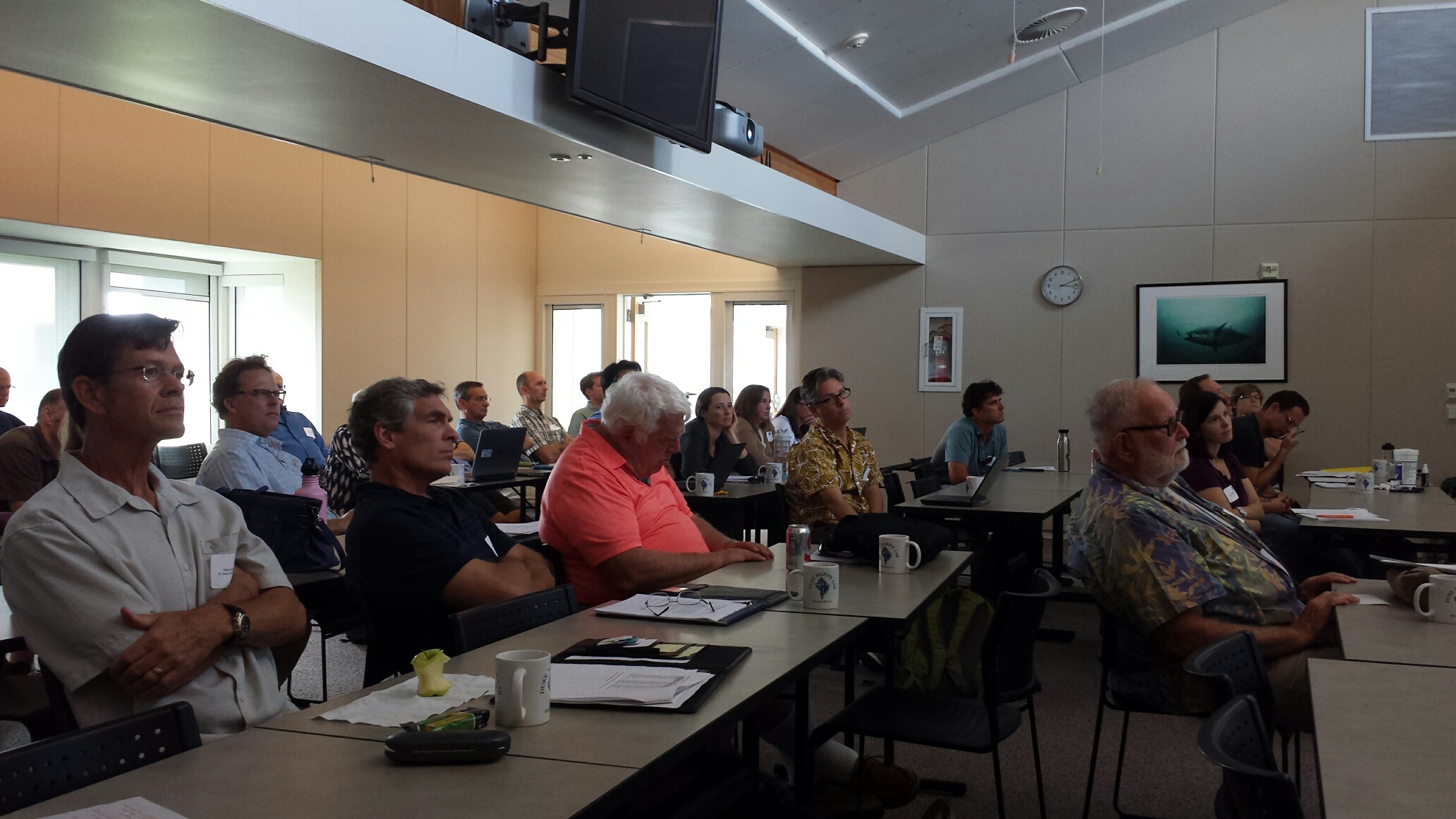Yearly Archives: 2015
IBIEM (Integrative Bioinformatics for Investigating and Engineering Microbiomes) is an interdisciplinary graduate training program between Duke University and North Carolina A&T State University which brings together scientists from various fields with an interest in microbiome research. Our educational model aims to transcend communication barriers between disciplines and promote team science.Graduate […]
ZIJ presented as part of the Southeast Ocean and Coastal Acidification Network state-of-the-science webinar series. The seminar series lays a foundation for the state of ocean acidification science in the Southeast region. The talk was titled, ‘Temporal variability of the carbonate system and the microbial community in a dynamic coastal […]
Sarah Loftus, PhD ecology student, wins second place in the Biology student poster competition at the Algae Biomass Summit in Washington DC. The Summit, organized by the Algae Biomass Organization, unites industry professionals from all sectors of the world’s algae utilization industries including those involved financing, algal ecology, genetic systems, […]
The Johnson Lab welcomed ~50 scientists from universities across North Carolina to discuss ongoing and future studies in coastal marine ecology. Specifically, the NC Long-Term Marine Ecology Scoping Meeting worked towards: (1) identifying ‘Coastal’ NC assets including existing data and measurement/analyses capabilities among NC scientists, (2) refining questions, project goals […]
ZIJ co-chaired a session on Marine Photosynthetic Bacteria and presented a paper (abstract below) on the response of Prochlorococcus to temperature change at the International Symposium on Phototrophic Prokaryotes 2015 (ISPP2015) meeting in Tübingen, Germany. The meeting highlighted the current knowledge and the most recent advances of research on phototrophic […]
On Saturday, August 1, the Duke Marine Lab hosted its annual Open House extravaganza. This year’s event was exceptionally well-attended, with more than 500 curious guests coming to explore our island community, learn about the history of the Marine Lab, and delve into the exciting research going on here. The […]
Algal biomass can be converted to advanced biofuels that offer promising alternatives to petroleum-based diesel and jet fuels. Additionally, algae can be used to make a range of other valuable bioproducts, such as industrial chemicals, bio-based polymers, and proteins. However, barriers related to algae cultivation, […]
Ocean Sampling Day was initiated by the EU-funded Micro B3 (Marine Microbial Biodiversity, Bioinformatics, Biotechnology) project to obtain a snapshot of the marine microbial biodiversity and function of the world’s oceans. It is a simultaneous global mega-sequencing campaign aiming to generate the largest standardized microbial data set in a single […]
Theoretical studies predict that competition for limited resources reduces biodiversity to the point of ecological instability, whereas strong predator/prey interactions enhance the number of coexisting species and limit fluctuations in abundances. In open ocean ecosystems, competition for low availability of essential nutrients results in relatively few abundant microbial species. The […]










